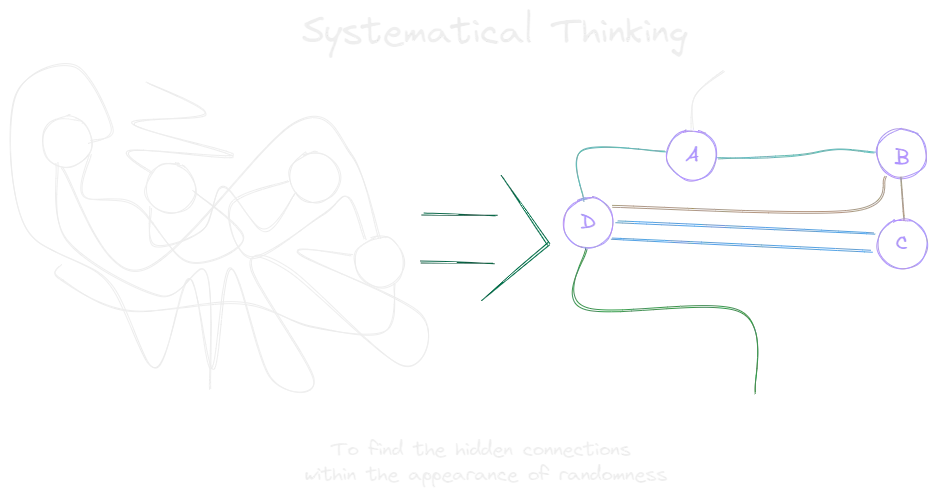Systematical Thinking
Notes
Systematical Thinking is a way to see the world through the lens of systems, meaning seeing things in the world such as phenomenon, actions and communication as the logical result of a certain function Functionalism. Usually thinking systematically is focused on changing the causes of a given action rather than the action itself Intention. This is similar to GIGO, once we understand how the function works, we just need to change what we feed it into order to solve the problem.
For example, if we fail to keep up with our habit of eating healthy, we will look at our behavior as a result of the current environment (or system) we currently have in place Environmental design. Perhaps it is because we fail to buy healthy food, or because we place the unhealthy food at eye level, etc... finding the leading cause and create a better system would lead to better actions.
However, there are times where the function is so useless that we have to change it, that no matter how hard we try, as long as it stays like this we would never succeed. For example, imagining trying to communicate with others only physical mails. The best intentions would still lead to nothing because this method is useless, and there is little hope of making it better, we just have to use a different system.
Thinking systematically is about Connection Making, it's about how different, yet supposable separate, parts interact with each other, and how that interaction affects them and the final outcome. It's about Friction and how it can be reduced.
An efficient system is one that feels natural, that after we have set it up it runs on it's own, and we can relax and know that with it we will get the results we want.
However, setting up a system is not easy. Sometimes there's already a system in place that is very hard to change/unroot. Also setting up a system usually comes with high Upfront costs. Thinking in systems is often a "go big or go home". We won't settle for trying to solve the individual case, we Zoom out and see the picture as a whole, and ask ourselves "which system could have led to this kind of outcome", and try to replace that.
Visual

Overview
🔼Topic:: behavioral psychology (Map) ◀Origin:: 🔗Link::